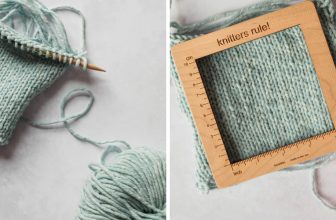How to Stop Rats From Chewing Plastic
Introduction:
Rats have a reputation for being unsanitary and disease-ridden vermin, but they are just looking for food in most cases. Unfortunately, one of their favorite foods is plastic. This can be a problem because rats often chew through the insulation on wires, resulting in short circuits that cause fires or power surges.
Rats also gnaw on electric cables, creating sparks that could start a fire as well. Thus, these rodents are not only dangerous to humans but pose an enormous risk to our buildings and infrastructure due to their insatiable hunger for non-edible materials such as plastics and rubber products. In this article, I will discuss how to stop rats from chewing plastic. So let us get started.
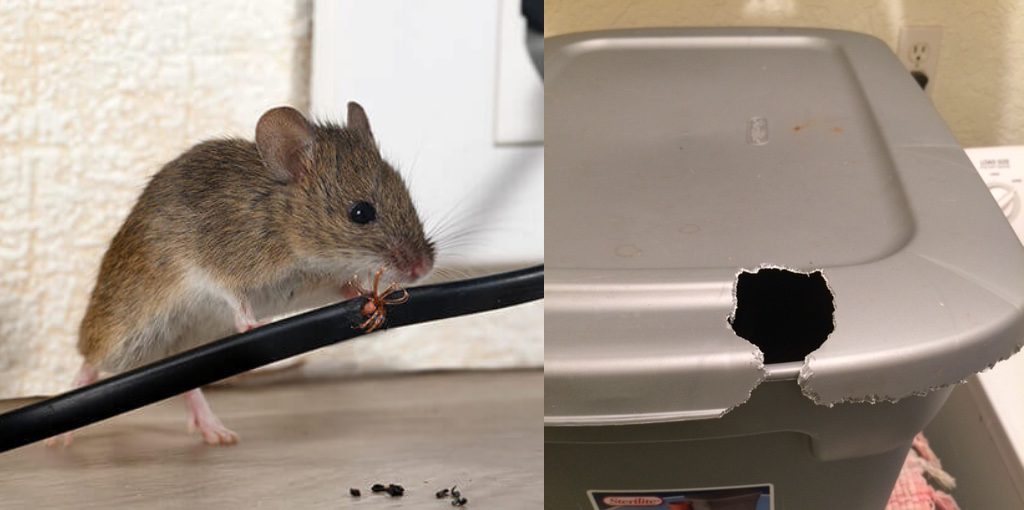
Why Rats Love Chewing Plastic?
Rats love chewing on plastic because of the taste and smell. If you notice your rat licking the plastic water bottles, they may be trying to get a taste of the liquid inside rather than thirsty. Even if you remove all possible fluid sources from your rat’s cage, they will still try to chew through any plastic around them.
Rats are natural-born chewers, but their teeth grow continuously throughout their lives naturally, so some things can be done to discourage this behavior. Rats are also attracted to the smell of chewed-up plastic as well. So it seems like chewing on plastic is not only about having something tasty but also scents. You may have noticed your rating or licking where he has chewed on the plastic toys in its cage.
You Can Check It Out to Stop Rats Getting Under Roof Tiles
Most Common Places That Are Frequented By The Rodents:
1. Closed Buildings
Manufacturer stores, warehouses, etc. If there is no food available, rodents will end up chewing on your stored products like clothes, shoes, furniture, wires, and insulation materials (plastic) used in the heating/cooling systems for their taste buds. Inspection: This step is the most important. Inspect the premises regularly and look for signs of rodents like droppings, holes, damage to stored products, etc. Rodents are nocturnal animals, so during the night inspect your premises thoroughly.
2. Unsafe Places
Abandoned places, garbage piles, etc. Rats usually look for safe hiding spaces to breed and raise their young ones. Therefore, if you have any area in an abandoned building or under your house covered with garbage, this is the most suitable place for the rodents to hide because they feel secure. Also, if there is any place in your house that you do not use frequently, rats will find it attractive. As soon as they enter your home through the gaps and holes, they start looking for such places to build their nests.
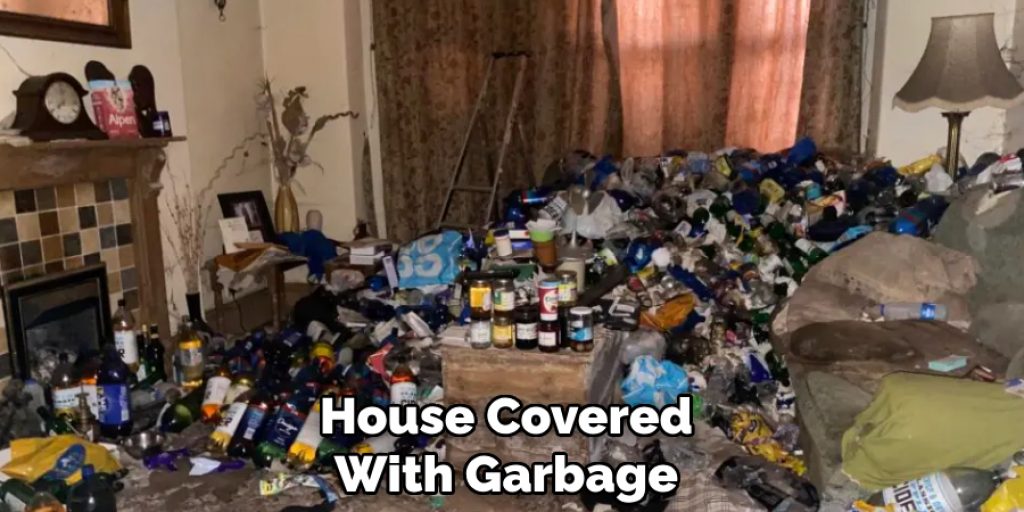
3. Allergies
This is undoubtedly one of the main reasons why you (or your neighbor) may be facing rodent problems even if there are no empty buildings nearby. Rodents tend to multiply very fast; therefore, they can cause severe damage within a few months. It has been seen that people who are allergic to rat hair/droppings cannot bear their presence in their surroundings (even if it’s just one rat). Rats always keep on moving from one place to another; therefore, if you live in a neighborhood with many abandoned homes, then the chances of your neighbor’s house being at high risk are much higher.
A Detailed Stepwise Guide on How to Stop Rats From Chewing Plastic:
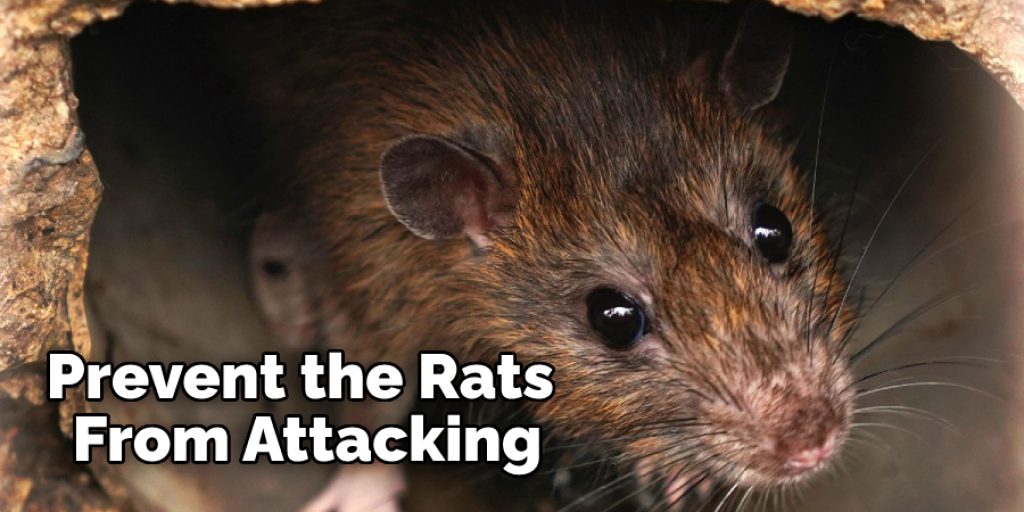
Although, it is believed that Rats are not fond of chewing plastic items. This myth has caused damage to many people because due to this misconception, they keep on waiting for their rodent problem to go away by itself. Trust me; you need to take immediate steps to prevent the rats from attacking your valuable goods (all types of plastics included). How to keep rats away from plastic garbage cans? The answer is pretty simple; clean your garbage can often.
Step 1 – Look For Signs Of Rat Presence:
If you have set up traps near your stored goods or under your house, then most probably you would have already caught a few rats. If you have not, then firstly look for signs of rodent presence. Rodents usually leave their droppings and urine behind whenever they visit any place. You should also look for their burrows, as these burrows are a sure sign of the presence of rats. If you have found any such burrows or droppings, then you can be sure that your house is infested with rats. Now it’s time to catch them!
If you can see lots of droplets/droppings near the stored products or if your neighbor tells you about rat problems in his home, then don’t delay contacting a professional pest controller as soon as possible. He will help you with his expertise to get rid of the problem and also tell you how to avoid such situations in future.
Step 2 – Take The Necessary Preventive Measures:
If there is no current or past history of rodent attacks, but you suspect that there might be a risk of their attack, immediately take steps to prevent them from approaching your home/yard/factory/warehouse, etc. Rodents are susceptible; therefore, if they feel any threat to their life in your home, then they may come back very soon with lots of baby rats.
The most effective way to prevent them from entering is by installing rodent-repelling devices like electric rat zappers/traps etc.
Step 3 – Contact A Professional Pest Controller:
If you have already caught a few rats through traps or your neighbor tells you about rat problems, then don’t delay contacting a pest controller immediately because this type of problem can become severe within days rather than months.
Although it has been seen that the professionals often fail to deliver expected results in very little time; however, if you hire an expert available at your service for 24*7 hours of the day, then at least there are chances that he will get rid of the rodents before they become a threat to your life.
How Rats Chew Plastic?
Rats usually start chewing plastic items when they feel insecure because they believe there is danger nearby. If you have noticed, rodents chew on any plastic item, be it an electric wire or insulation materials used for heating/cooling systems. This may cause a short circuit and fire outbreaks that can endanger your life and endanger lives around you.
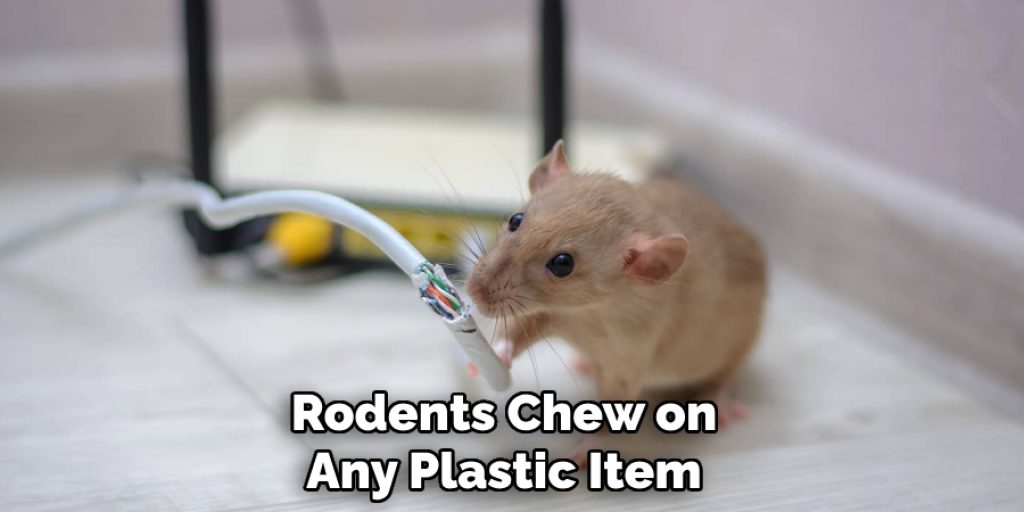
How To Kill Rats In Your Home?
If you have been trying to kill those few rats that you’ve caught through traps, then probably, it’s time for you to contact a professional pest controller as soon as possible because he might be having more advanced tools and equipment needed for killing those rodents.
There are many different types of rodent repellents available in the market, but using them without knowing their proper use is not only going to waste your money but also may endanger your health.
Rodenticide baits:
Professionals have used Rodenticides because it works effectively on rats within a significantly shorter period. However, if you try to use any rodenticide bait on your own, you might put your family at high risk because the skin can easily absorb it.
Repellents:
There are many different types of rodent repellent sprays available in the market that can help you get rid of those rodents but using them effectively is very difficult because they should only be applied where rats pass through frequently and not on any other area as it may cause severe damage to pets or humans living nearby.
Frequently Asked Questions
What Happens if a Rat Eats Plastic?
If a rat eats plastic, it can become seriously ill. The rat may suffer from abdominal pain, diarrhea, and vomiting. In some cases, the rat may even die as a result of eating plastic.
Plastic is harmful to both humans and animals because it can cause serious health problems if ingested. It can also lead to environmental pollution because it takes up space in landfills and pollutes waterways.
If you see any rats around your house or business, be sure to remove any pieces of plastic that they may have eaten. You can also try to discourage them from eating plastic by placing food items in containers made out of non-plastic materials.
Why Do Rodents Chew Plastic?
Rodents chew plastic for a number of reasons. They may eat pieces of plastic that are small enough to swallow but large enough to create a physical obstruction in their digestive system.
Another reason rodents chew plastic is that it provides them with a safe place to store food. Plastic is hard and doesn’t decompose, so it makes an ideal storage container for food.
Will Rats Eat Plastic?
There is no definitive answer to this question, as rats will eat anything that they can get their teeth on. However, based on the information that we have, it is safe to say that rats will not eat plastic.
What Do Rats Hate?
Rats hate things that make noise. This includes things like vacuum cleaners, leaf blowers, and even loud voices. If you can keep your business as quiet as possible, rats will not be attracted to it and will not bother you or your customers.
Can Rats Smell Food Through Plastic Bags?
Rats can’t smell food through plastic bags, but they can still eat them. Rats are able to sense the presence of food by touching, smelling, or tasting it.
Does Vinegar Disinfect Mouse Droppings?
There is no scientific evidence that vinegar disinfects mouse droppings. Vinegar may be effective at removing some types of bacteria, but it is not effective at disinfecting mouse droppings.
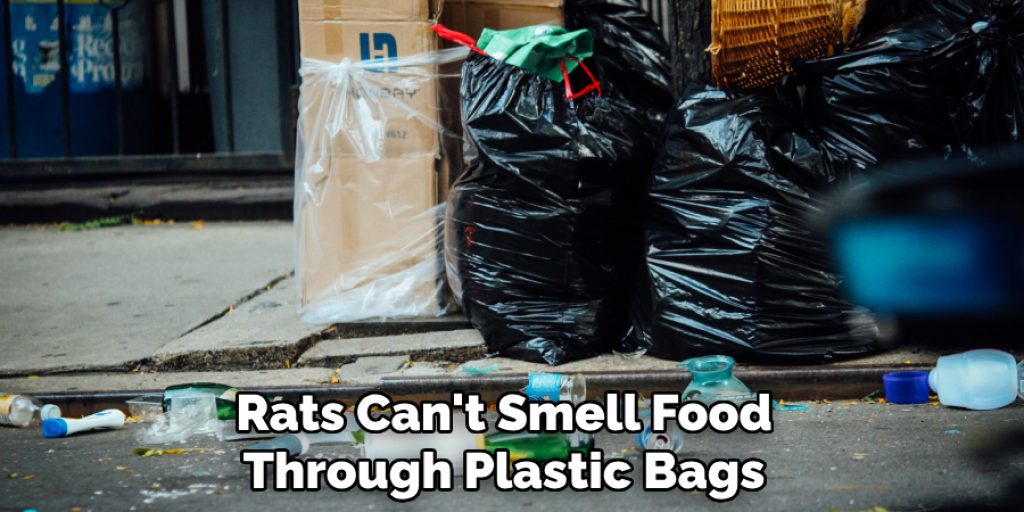
Conclusion:
I hope you have obtained all the necessary information on how to stop rats from chewing plastic. Ensure all the steps are correctly followed. Thank you and have a nice day!



